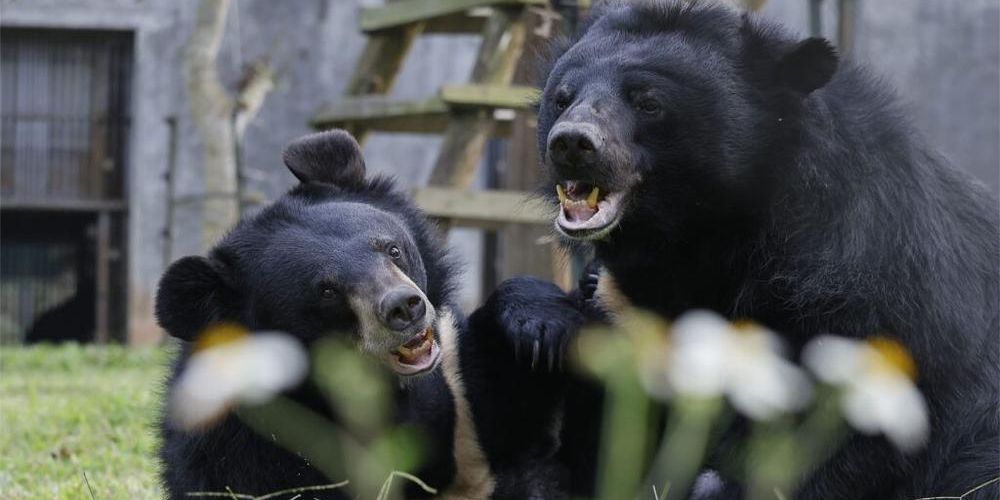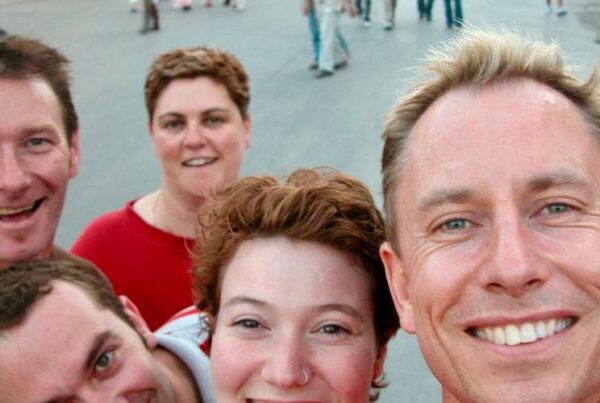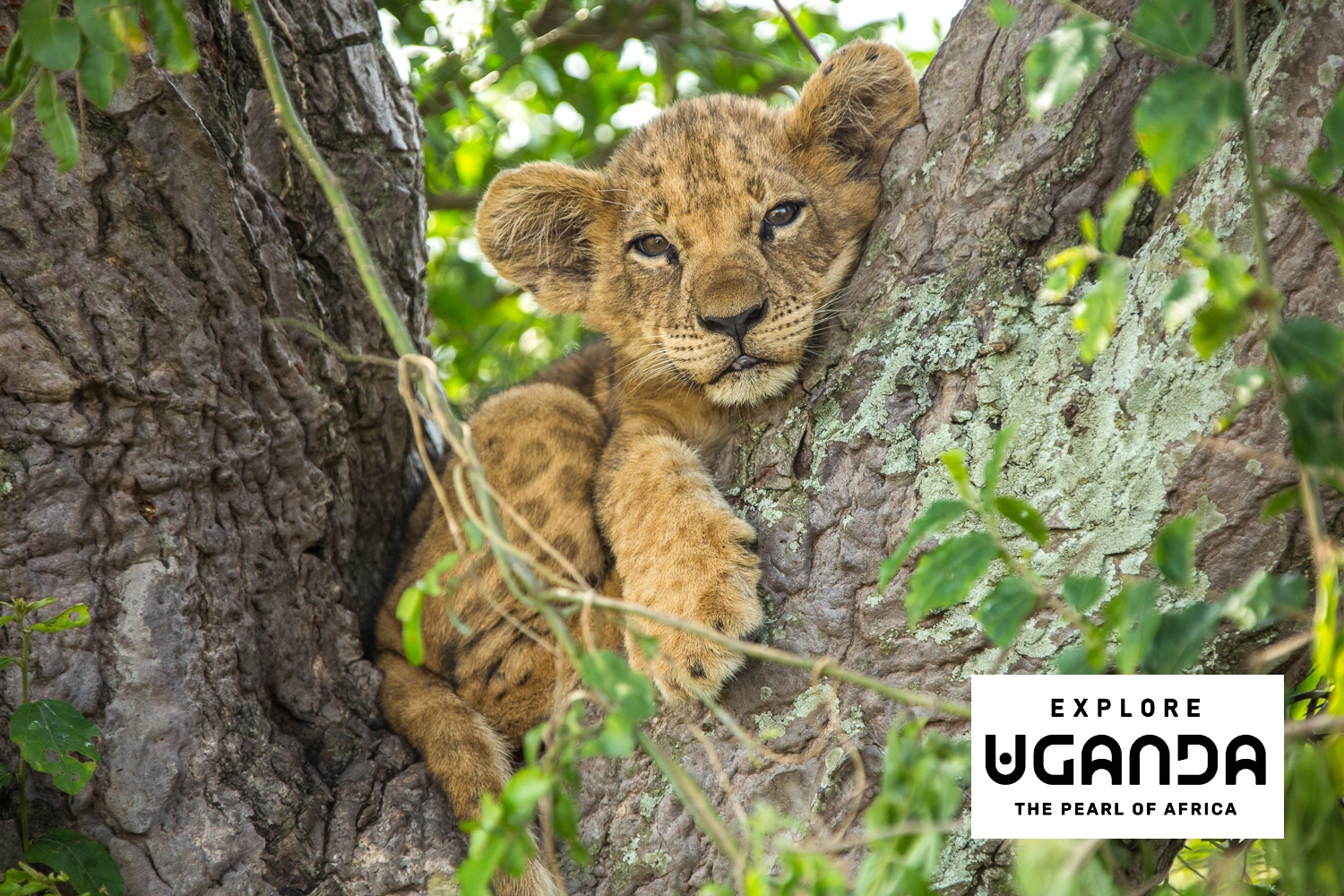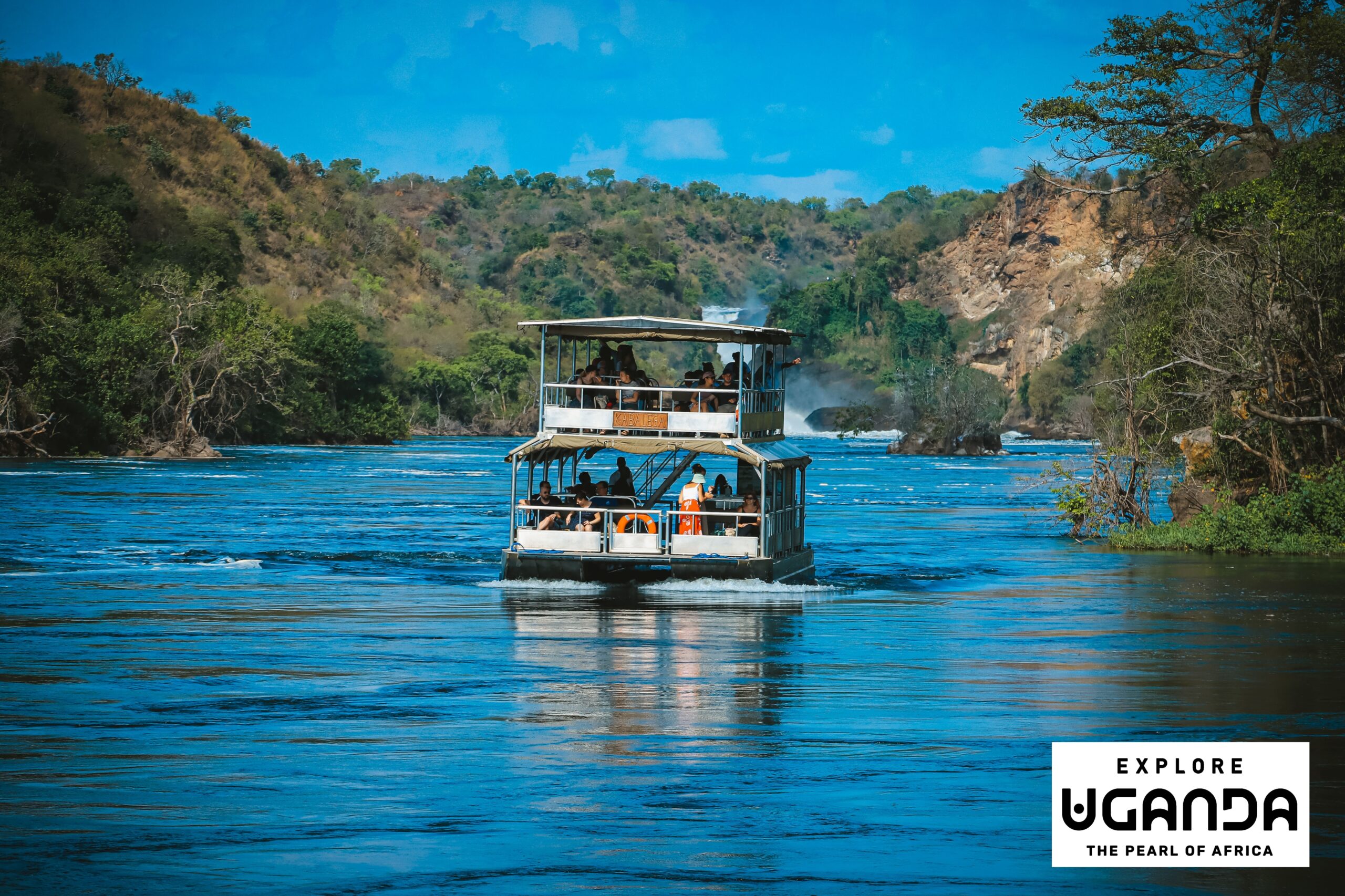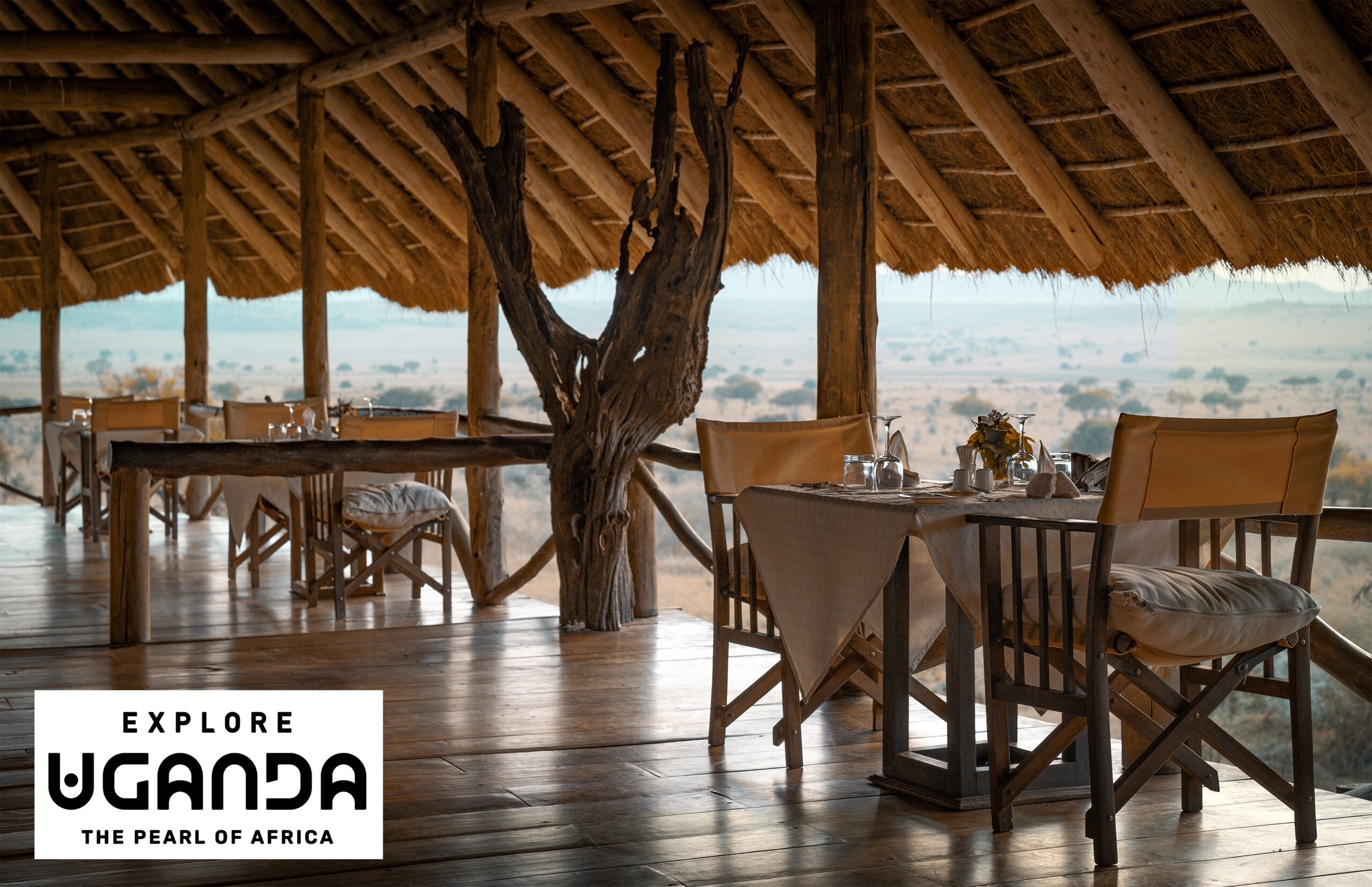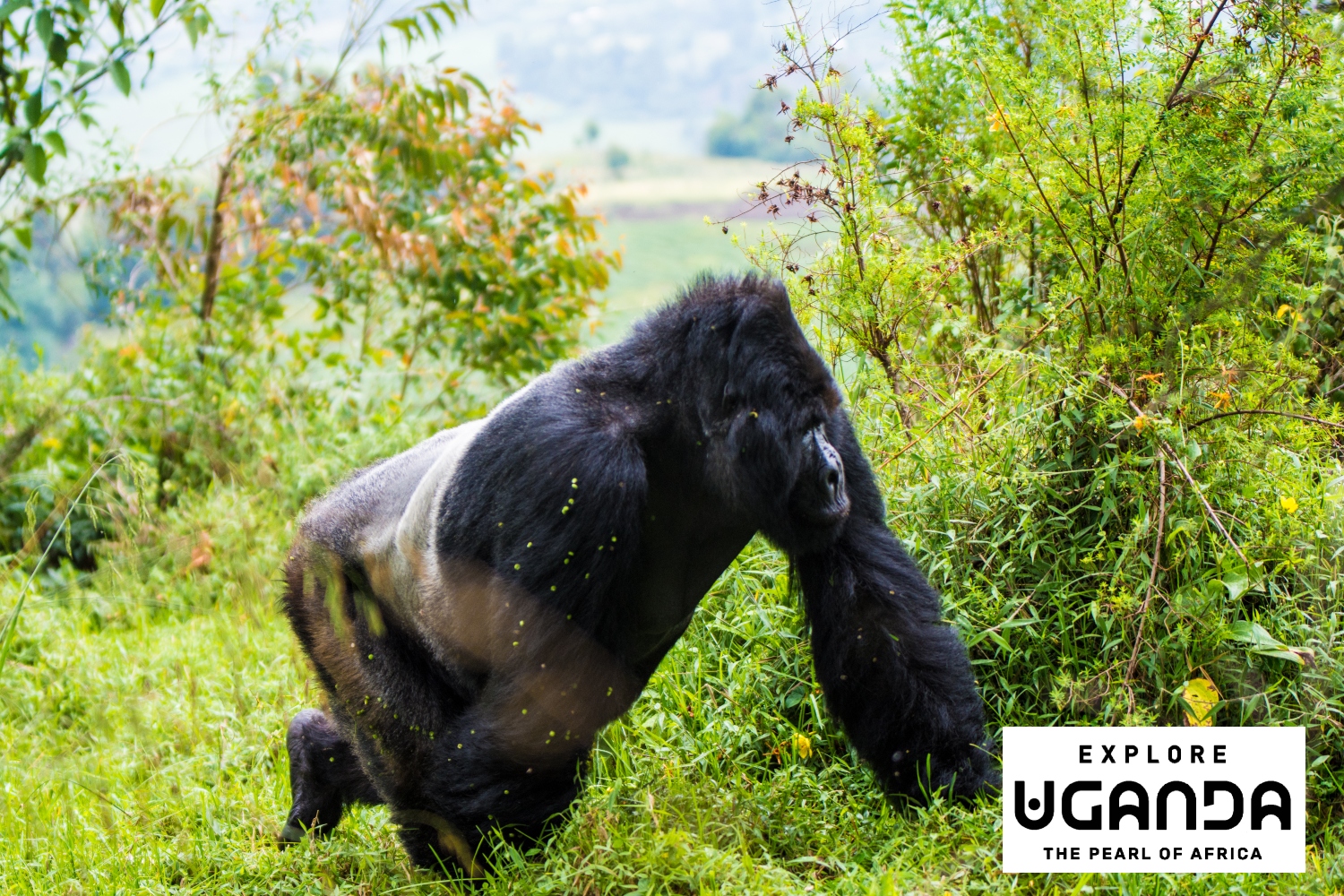As a species, we’re often quick to demonise those who act in ways of which we disapprove, detest or simply refuse to understand.
Wars have started that way.
Take bear bile farming in Vietnam. It would be easy to portray the perpetrators as wicked, soul-less individuals, torturing innocent and helpless animals for profit.
Yet talking to Jill Robinson, the inspirational founder of Animals Asia, you get a surprisingly different viewpoint and one this writer didn’t really expect.
I first encountered Jill at a travel conference last year when she had close to 200 people in tears (me included) when talking about (and showing!) the terrible suffering endured by these beautiful creatures.
Bear bile is marketed as a cure for cancer, colds, hangovers and much more, but the method of extraction is incredibly painful and the animals are kept for years in cramped, filthy cages, often with no natural daylight.
Jill was horrified by what she saw and founded Animals Asia in 1998 to stamp out the practice. Given she’s been fighting to do so for almost three decades and has so far rescued 600 bears, you might imagine she’d be critical of the farmers who take part in the practice.
But with the grace, compassion and forgiveness that makes her one of the world’s most lauded animal rights campaigners, she chooses not to judge…but to educate.
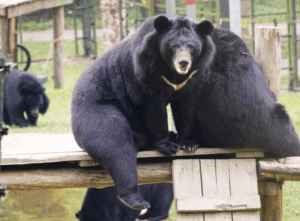 “We want to leave people with hope in their hearts,” Jill says as we chat at the Adventure World office in Sydney. She has formed a strong partnership with the company, who have exactly the same ideals as the campaigner.
“We want to leave people with hope in their hearts,” Jill says as we chat at the Adventure World office in Sydney. She has formed a strong partnership with the company, who have exactly the same ideals as the campaigner.
This partnership goes beyond financial support to creating meaningful advocacy and education. Adventure World have adopted a bear called Journee and runs tours to AA’s Tam Dao Bear Sanctuary to see the tangible evidence of what Jill and her team have managed to achieve, a home for 200 rescued bears.
 “We can see our work starting to pay off now,” adds Jill (pictured left with Neil Rodgers, Adventure World Managing Director). “Last year we had an ex bear bile farmer come along to see his bear at our sanctuary and I just couldn’t help asking.
“We can see our work starting to pay off now,” adds Jill (pictured left with Neil Rodgers, Adventure World Managing Director). “Last year we had an ex bear bile farmer come along to see his bear at our sanctuary and I just couldn’t help asking.
“I said, how do you feel, and he just answered me with one word. He said: “released”.
A second sanctuary, Bach Ma, is in the pipeline, which will hopefully become home to some of the 156 bears still in captivity across the country.
“Yes it is horrible and is still going on out there but because of people supporting us, this is where we now are.”
And where Animals Asia is now is close to fulfilling Jill’s dream of stamping out the practice by the end of next year.
While bear bile farming has actually been illegal in Vietnam since 1992, the government by their own admission have turned a blind eye.
The breakthrough came in 2021 when Jill signed a formal Memorandum of Understanding with the Vietnamese government to end the practice by 2026. Despite all the bears she’s rescued over the years, Jill considers that moment to be her personal highlight.
“Standing there with the Vietnam government signing that MOU, knowing we were ending bear farming by a specific date, was very emotional.
“I was standing next to a government official I had signed a previous memorandum with four years ago. We shook hands and both said we looked older now with more grey hairs!”
I ask whether she’s confident all the farmers will comply with the directive.
“These farmers are not poor. They’ve made a great deal of money over these last few years. Indeed, if you go to a bear farming community, the biggest houses in that community will be those belonging to the bear farmers themselves.
“So they’ve had notice. They’ve had notice that this illegal industry really will be finally brought to an end by the end of 2026.”
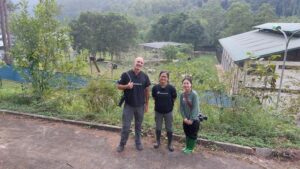 Above: Eric Finlay, Product Manager Asia, Adventure World, Tam Dao Bear Sanctuary
Above: Eric Finlay, Product Manager Asia, Adventure World, Tam Dao Bear Sanctuary
The journey to this point has been both long and emotionally challenging. Jill speaks candidly about the devastating conditions bears have endured and their multiple health issues, from smashed teeth to liver cancer, missing limbs and severe eye problems.
“Some of these animals don’t just have one of those issues,” she explains. “They have seven or eight.”
The AA sanctuaries represent more than just physical rescue. Jill describes the transformative moment when bears arrive from dark, cramped farms, experiencing natural light and freedom for the first time.
“They come out of quarantine with 360-degree vision across the verdant valley. There are langurs crying in the forest, bird song, blue skies, sunshine, rain – their senses must be on fire.”
 Above: The Adventure World team with the Animals Asia team
Above: The Adventure World team with the Animals Asia team
Education has been key to sustainable change. The younger generations are driving transformation, with farmers’ children often telling their parents “this is wrong”.
Jill shares a poignant story of a farmer’s daughter – educated in Australia – who struggled emotionally seeing her family’s bear in such a poor condition, symbolising a generational shift in understanding animal welfare.
“She’d seen the bear in the cage for more than 20 years as she was growing up. When we anesthetised the bear and brought it out of the cage it looked so skinny and vulnerable.
“She just looked at me and said “is it going to live?”. She was so tearful because she loved her parents dearly but equally you could see she was struggling in terms of what happened to that bear.”
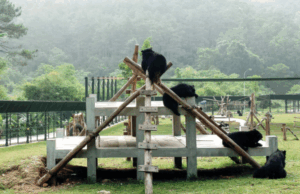 Beyond their physical needs, the psychological rehabilitation of bears is equally important.
Beyond their physical needs, the psychological rehabilitation of bears is equally important.
At Tam Dao, they provide medication like Prozac, nutritious food and crucially, choice and companionship.
“We give them choices,” Jill says. “They can do what the hell they like. Even though they’re supposed to come back at night, they don’t actually have to.”
As our time together comes to a close, I ask Jill whether she’ll retire once the last bear is set free. She laughs and says emphatically: “Never! The final goal isn’t just rescuing bears, but ensuring bear farming never restarts.”
Silly question, really…
It’s easy to see the bears’ journey from darkness to light as a metaphor for hope itself – a testament to what dedicated, compassionate humans can accomplish when they refuse to look away.
